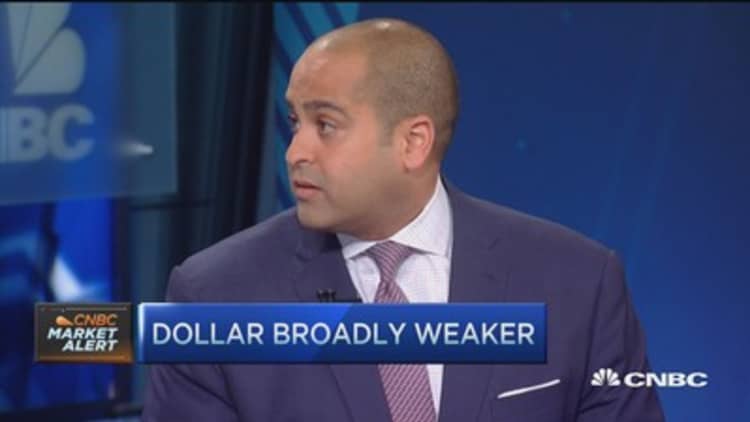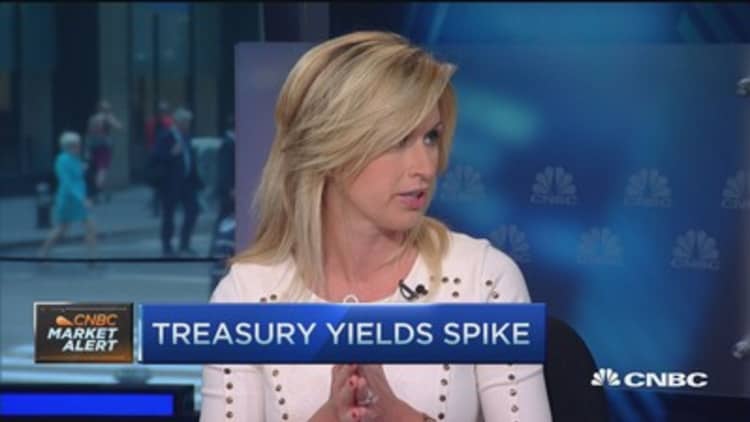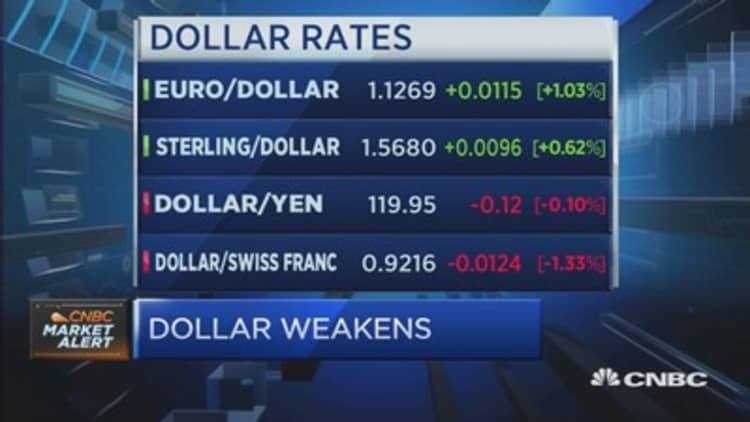


Stocks in the U.S. and Europe were under pressure Tuesday as the global surge in bond yields gained momentum.
Easy monetary policies from the Federal Reserve and the European Central Bank have created asset inflation, Joseph Tanious, principal at Bessemer Trust, told CNBC's "Squawk Box" in an interview. "I'm not so sure that bubble is in the stock market just yet. I think if you take a look at bonds we can argue clearly that valuations there have gotten really frothy."
Read MoreHere comes another reason to buy European stocks
Anastasia Amoroso, global market strategist at JPMorgan Funds, said, "It's all about the German bund." The average yield on German government debt, which had dipped negative recently, spiked to around 70 basis points Tuesday. "What really matters right now to the U.S. Treasury is what's happening in Europe," Amoroso said. The yield on the 10-year Treasury was around 2.31 percent Tuesday.
"The [price] selloff in the bund may be overdone," said Amoroso. She said the reasons for the fall in bund prices, which move inversely to yields, were two-fold. On the positive side, she said, "credit growth in the euro zone has picked up … [and] it seems like QE [in Europe] is finally working." The ECB has embarked on a Fed-style quantitative easing bond purchase program. On the technical side, she said there's "too much supply in too short of time."
Tanious said he expects choppiness in world bond markets to prevail. "I suspect that between now and the end of the year we're probably going to see interest rates move a little bit higher," as traders get out in front of the Fed's expected rate hike, which many economists think won't happen before September.
As for stocks, he said, "I don't think, unless you enter a recession, you're going to see multiples contract," referring to the price to earnings ratio.
"I don't think you're going to get a whole lot more multiple expansion from this point," he continued. "But I think multiples kind of hover at these levels. And the majority of gains moving forward comes on the back of earnings."


